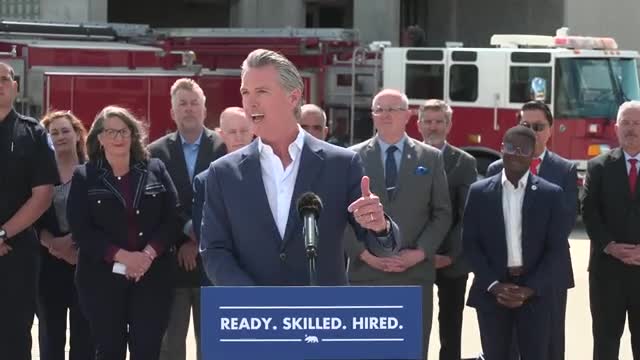California launches career education master plan to enhance workforce development
April 04, 2025 | Office of the Governor, Other State Agencies, Executive, California
Thanks to Scribe from Workplace AI and Family Portal , all articles about California are free for you to enjoy throughout 2025!

This article was created by AI using a video recording of the meeting. It summarizes the key points discussed, but for full details and context, please refer to the video of the full meeting. Link to Full Meeting
The governor emphasized the need for a sophisticated approach to navigate future job markets and career opportunities. He highlighted the importance of understanding California's diverse economic landscape, which comprises multiple local and regional economies rather than a singular state economy. This understanding has led to the creation of 13 regional collaboratives that will focus on key areas of economic and workforce development.
A central component of the initiative is the "jobs first" plan, which aims to connect K-12 education systems with higher education institutions and the business community. This collaborative effort is designed to ensure that students and workers see themselves as integral to the economic vision being laid out. The governor stressed that success does not solely depend on obtaining a four-year degree; rather, individuals can thrive in the new economy through various pathways.
One of the most notable aspects of the plan is its recognition of prior learning experiences, particularly for veterans. The initiative aims to support 30,000 veterans and 250,000 additional individuals, such as emergency medical technicians (EMTs), by allowing them to receive academic credit for their real-life skills and experiences. This approach seeks to streamline the transition from military service or other careers into higher education and better job opportunities.
Additionally, the governor introduced the concept of a "career passport," which would serve as a dual transcript system, combining traditional academic records with a record of career skills and experiences. This innovative framework aims to provide a more comprehensive view of an individual's qualifications, enhancing their employability in a rapidly evolving job market.
In conclusion, the meeting underscored California's commitment to redefining education and workforce development through a skills-based approach, fostering collaboration across various sectors, and recognizing the value of diverse experiences in shaping career paths. The initiative represents a proactive step towards equipping Californians with the tools necessary to succeed in the future economy.
Converted from Governor Newsom announces major skills-based hiring, education effort meeting on April 04, 2025
Link to Full Meeting
Comments
View full meeting
This article is based on a recent meeting—watch the full video and explore the complete transcript for deeper insights into the discussion.
View full meeting


